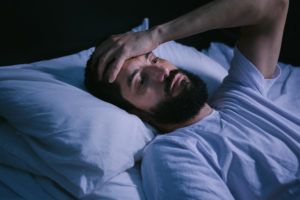
One of the most common symptoms of sleep apnea is feeling fatigued during the day. Many people affected by the disorder find themselves nodding off behind the wheel or at their desks at work. If you are not getting enough sleep at night, it can be tempting to take a quick nap during the day. However, napping can actually interfere with the effectiveness of your sleep apnea treatment. Keep reading to learn about the challenges associated with napping and sleep apnea in Burien.
Why Daytime Naps Aren’t Always Good
Under normal conditions, a quick “power nap” can help you feel more awake and alert. However, research shows that sleep loss is cumulative and cannot truly be made up by getting bits of rest here and there. Additionally, taking daytime naps can interfere with the body’s natural clock – especially for those affected by sleep apnea. By sending your body mixed messages about when it’s time to rest, you could worsen your sleep apnea symptoms. The optimal time range for sleep is between 11:00 pm and 8:00 am. Do your best to rest during this window each night and avoid napping during the day.
Simple Ways to Improve Sleep
Over time, sleep deprivation can lead to serious health problems. Lack of sleep is associated with stroke, diabetes, hypertension, heart disease, and other life-threatening conditions. Here are a few rest aids that won’t interfere with your sleep apnea treatment:
- Incorporate physical activity into your daily routine.
- Stop eating around two hours before bedtime so your body isn’t busy digesting when it should be resting.
- Limit your consumption of alcohol, especially at night.
- Avoid using your phone, tablet, or laptop in bed; try reading a book or meditating instead.
- Make sure your bedroom is completely dark when you’re sleeping.
- Limit daytime naps.
Time to Reconsider Your Treatment Method?
Are you already using a CPAP machine to treat your sleep apnea in Burien? Do you still feel tired during the day? If so, you should consider exploring other sleep apnea treatment options. Many patients find sleeping with a CPAP machine to be difficult due to the noise or discomfort of wearing the mask.
A popular alternative to a CPAP machine is oral appliance therapy. An oral appliance is a small, custom-made mouthpiece that is worn at night. This device makes slight changes to your jaw position to keep your airway open while you sleep. When worn consistently, an oral appliance is effective at improving sleep and reducing drowsiness.
If you want to improve the quality of your sleep and protect your health, ask your dentist if you could benefit from oral appliance therapy. And avoid napping during the day!
About the Author
Dr. David Thomas is dedicated to helping patients in Burien achieve quality rest on a consistent basis. An active member of the Washington State Dental Association, Dr. Thomas provides oral appliance therapy at his welcoming private practice. To learn more about napping and sleep apnea, visit the Seahurst Park Dentistry of Burien website or call 206-244-4622.



